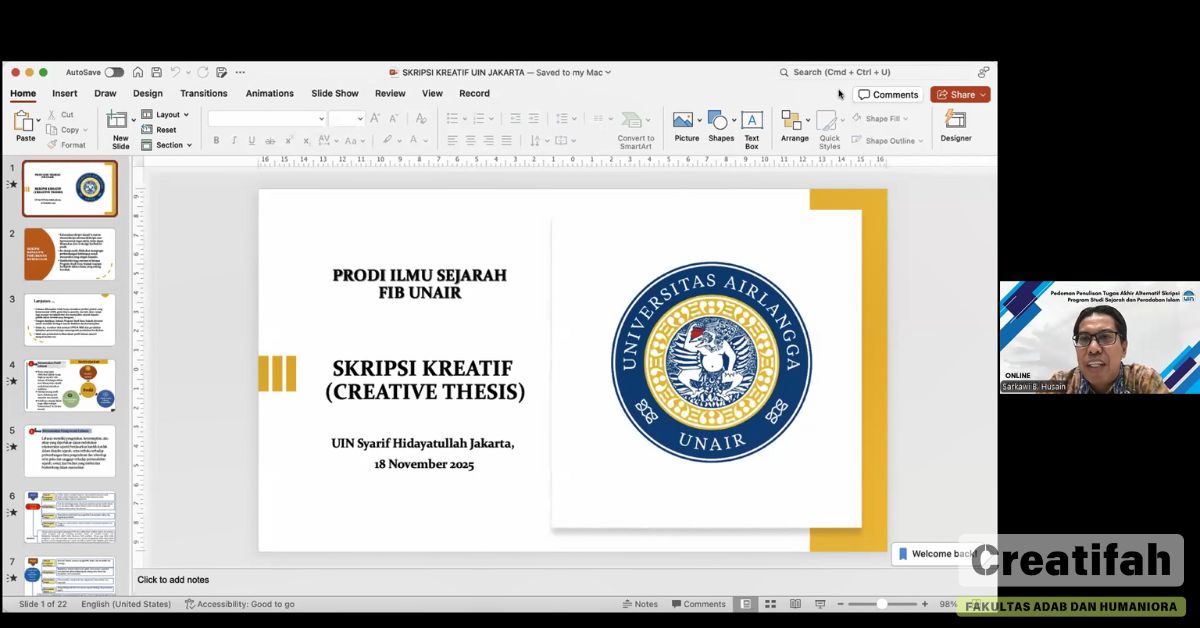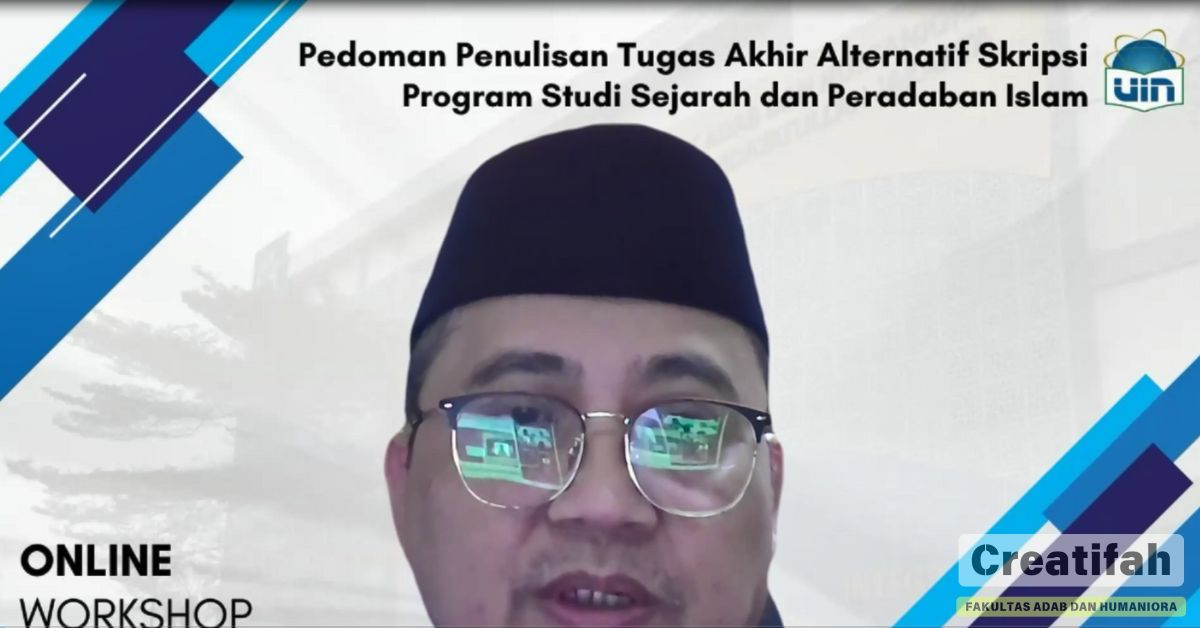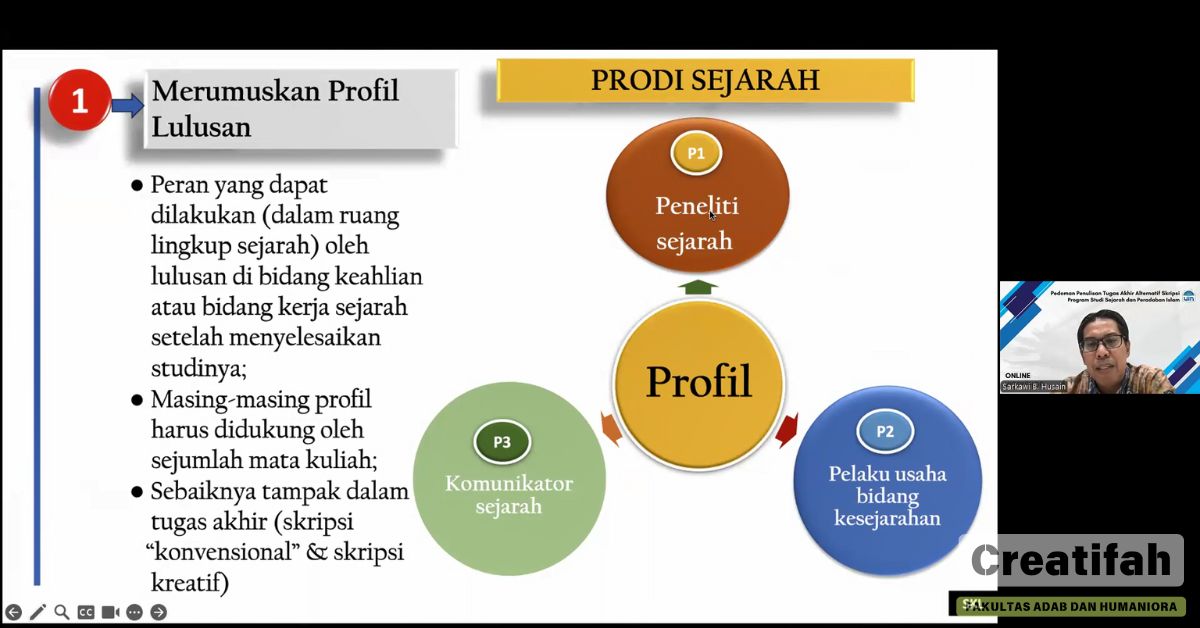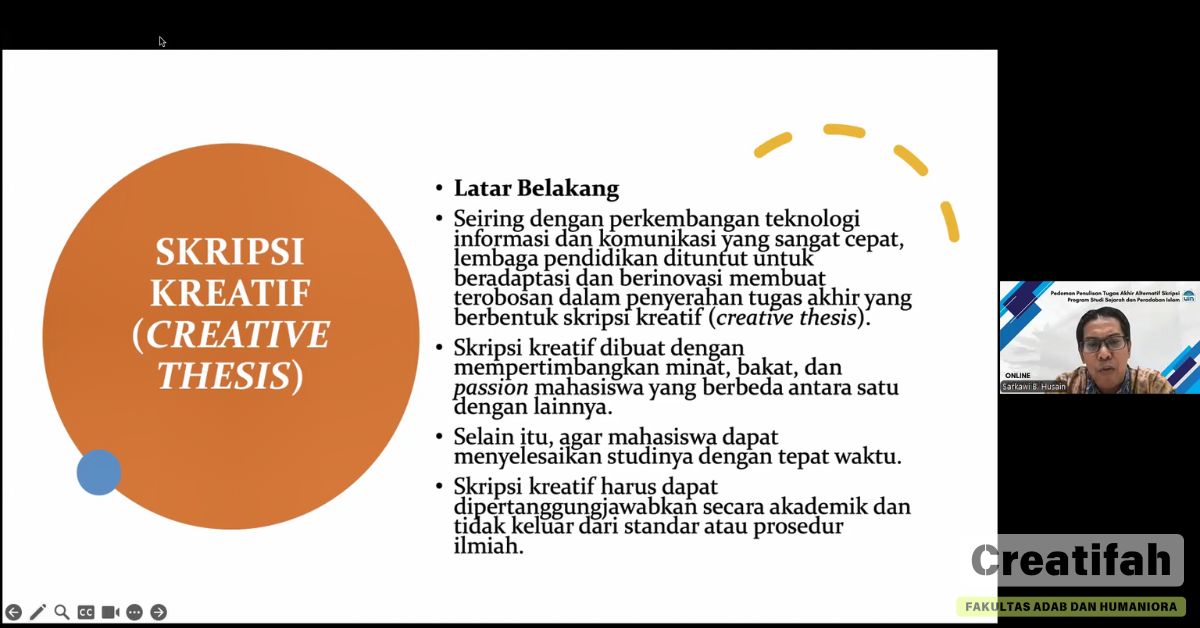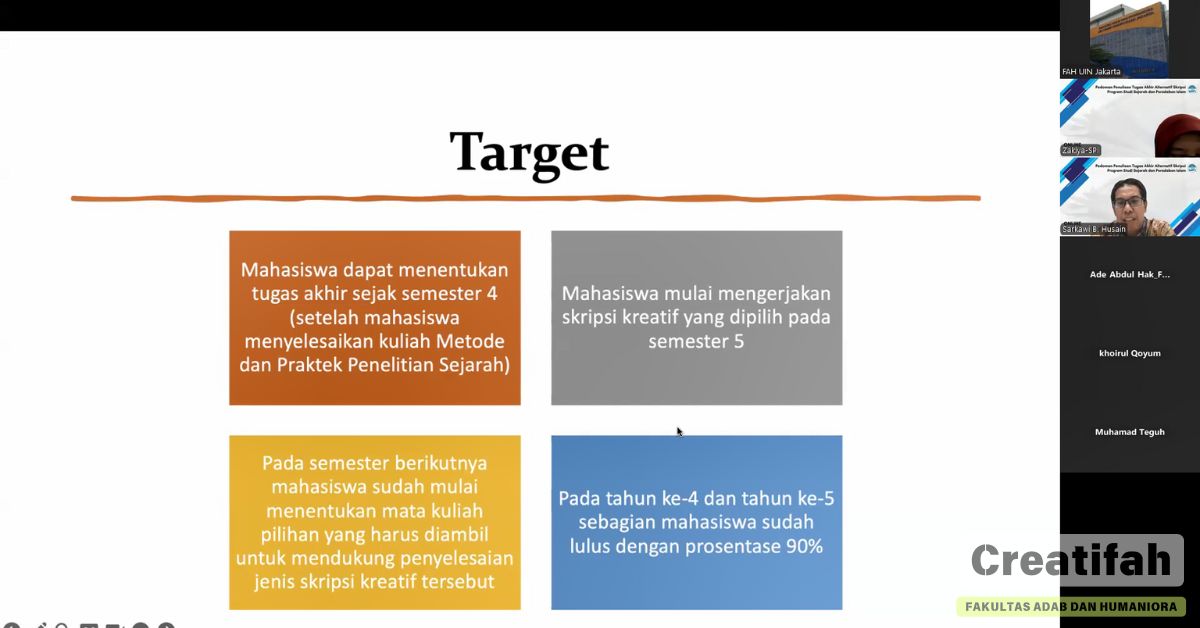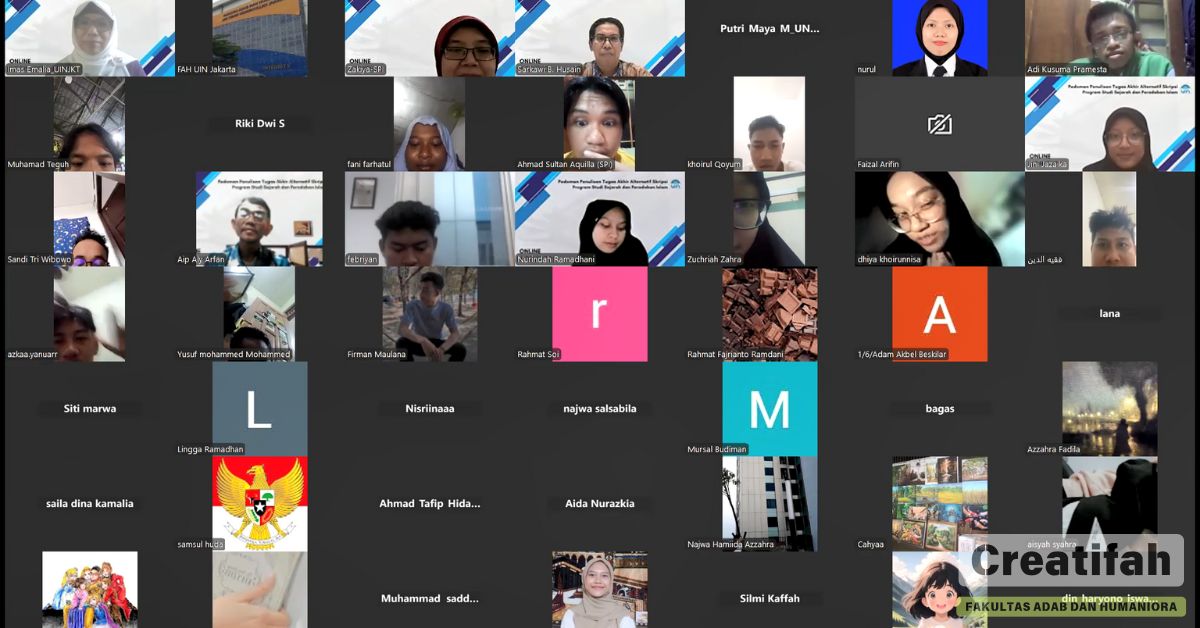SPI UIN Jakarta Alternative Final Project Workshop Encourages Students to Develop History-Based Creative Work
South Tangerang, FAH News Online – Islamic History and Civilization Study Program (SPI) Faculty of Adab and Humanities UIN Syarif Hidayatullah Jakarta held a Workshop on Guidelines for Writing Alternative Final Assignments on Tuesday, 18/11/2025, through a Zoom Meeting. This activity is a strategic step in introducing final assignment options other than the thesis ranging from historical novels, documentaries, conservation of historical heritage, to other forms of creative work.
The workshop presented resource person Prof. Dr. Sarkawi Hussain, SS, M.Hum., Professor of History at Airlangga University, and attended by more than a hundred participants consisting of lecturers and SPI students. The activity was opened by the Head of SPI Study Program, Dr. Zakiya Darojat, MA, who emphasized that alternative final project models are needed to answer developments in the scientific world.
“Our students must be given space to work not only through scientific writing. On many campuses, including UNAIR, the final project evolved into a more creative form. That's what we want to adapt to,” he said.
Dean of the Faculty of Adab and Humanities, Dr. Ade Abdul Hak, S.Ag., SS., M.Hum., in his speech assessed this workshop as an important effort to strengthen academic quality. He emphasized that scientific articles as alternative final assignments could be more accessible and cited works.
“Students must prepare themselves from the fifth semester. "The guidelines that have been established through the Decree need to be understood together so that implementation runs well," said Mr Ade.
Presenting the material, Prof. Sarkawi explained that the presence of creative final assignments cannot be separated from the demands of the new curriculum and broader competency needs in the world of work. He pointed out that the opportunities for history graduates were enormous, including in archival institutions.
“The Attorney General's Office needs 600 historians, and only around 200 are available. This shows that job prospects for history graduates are very open,” he explained.
According Prof. Sarkawi, technology and increasingly diverse student interests demand a new approach to the final project. Students with interests in the fields of audio-visual, conservation and community service must be facilitated without ignoring academic standards.
“Alternative final tasks must still be scientifically accountable. Students are required to compile an academic manuscript of around 20–50 pages which is the basis for documentary or other creative works, he stressed.
In his presentation, Prof. Sarkawi also suggests that students determine the direction of their final assignment from semester 4, so that in semester 5 they have started working on the selected project. With this pattern, students are expected to graduate on time in the fourth or fifth year.
He added that alternative final assignments are no easier than a thesis. “The shape is different. Academic burdens and responsibilities remain the same,” he said.
The activity closed with an interactive discussion session, where students and lecturers discussed opportunities, challenges and technical implementation of alternative final assignments in the SPI environment.
Author: Rahmat Mubaroq
Dokumentasi:

